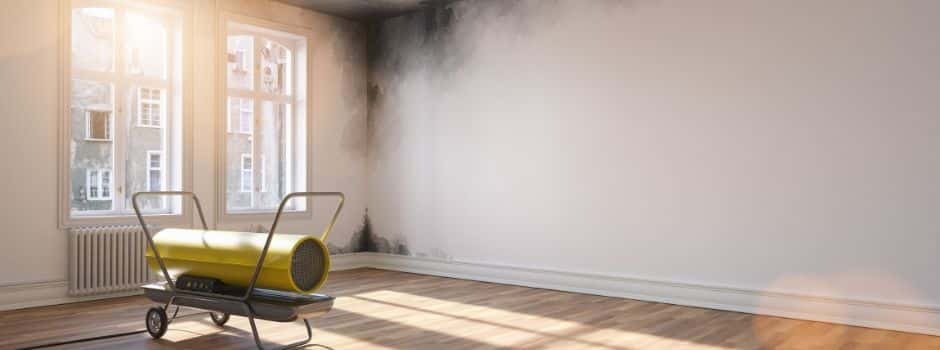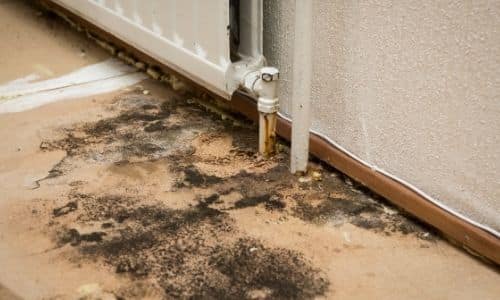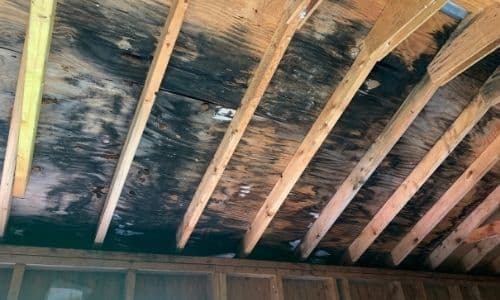
Why Is Mold Bad For Your Health In Lexington SC?
If you have a damp area in your home, then you're probably familiar with the problems that mold can cause. Mold thrives in areas like bathrooms, kitchens, and basements. It can also cling to ceiling tiles. Even worse, it can damage property. Read on to learn about why mold is bad for your health, and how to prevent it from ruining your property. This article will explain the importance of mold removal in Lexington, SC.
Mold thrives in bathrooms and kitchens
Black mold can be found in both bathrooms and kitchens and can cause a variety of symptoms including asthma. It's a common problem that can affect a wide variety of people and can be particularly dangerous because it can cause skin infections and affect the immune system. In addition to these symptoms, black mold is also dangerous for the health of your family members, especially if you're prone to respiratory diseases such as allergies.
The first sign that you may have black mold in your home is the presence of this slimy, dark green substance. The cause of this substance is unclear. There are several reasons why you might have black mold in your home. Besides the obvious health risk, penicillin mold can cause allergic reactions. This is because it grows in moist areas. Exposure to penicillin mold can cause respiratory issues, including asthma and chronic sinusitis.
If you find mold inside your kitchen or bathroom, it means you have a water problem. A leaky pipe, poor drainage, or inadequate ventilation can lead to a high prevalence of mold in these areas. You can't just scrub away the mold - you need to tackle the water source in the first place. It can be extremely hard to clean the mold off of your walls - you must first find the source and fix it.
The temperature in the area is another contributor to mold growth. When temperatures are high and the humidity levels are high, mold grows easily in these areas. You can lower the humidity by using a dehumidifier, but this will only do temporary relief. To prevent mold from growing inside your home, set your ceiling fans to run clockwise and counterclockwise. In the summer, ceiling fans should be set counterclockwise, while in the winter they should be turned clockwise. This way, warmer air will rise and cool air will descend. The air circulation will also prevent condensation from forming on cold surfaces, which will help prevent the growth of mold.
Another source of mold growth in bathrooms and kitchens is dampness in the air. Air conditioners and dehumidifiers can create the perfect environment for mold growth. Keeping the humidity level between 40% and 60% can help prevent mold growth. If you're concerned that mold is growing in your home, it's important to get rid of damp areas, such as the floor. Also, be sure to remove any carpeting in the bathroom.
It can cling to ceiling tiles
You can easily get rid of mold by cleaning the ceiling tiles by mixing bleach with water. The mixture kills mold spores and mildew-like scents. However, you should remember that the ceiling tiles might get permanently stained by mold. Therefore, you should hire a painter for aesthetic reasons. If you do not have the budget to hire a painter, you can still clean the tiles by yourself.
In addition to damaging your property, mold can lead to various health problems. It tends to grow in dim, damp areas and cling to various materials. Once it starts thriving, the mold destroys various materials easily, including ceiling tiles. Replacing or repairing damaged materials is both expensive and frustrating. In addition, the symptoms are similar to the flu. If you do not clean your ceiling tiles properly, you may even develop more serious health issues, like asthma and lung disease.
If you've discovered that your ceiling tiles are clinging to mold, you may want to get them cleaned. You should also look for a blue spot, which indicates moisture and a mold outbreak. Once you've cleaned the tiles properly, you may want to consider re-tiling them if they are sagging. This way, you will be sure to avoid causing further damage.
The growth of mold has been evident since the transition from summer to fall weather, and it's been growing steadily over time. Interestingly, the mold only grows in one side of the house, probably because there was missing insulation in that area. In contrast, the non-infected area corresponds to the framing of the ceiling. A leaky pipe or a crack in the roof would cause the mold to grow unevenly.
It can cause respiratory problems
While mold in homes is a common occurrence, there are a variety of respiratory health consequences to this fungus. Whether the mold is spores or a complete fungus infestation, exposure to mold is dangerous for people with respiratory diseases and those with weak immune systems. People with chronic lung disease, organ transplant recipients, and HIV/AIDS are also at higher risk for developing allergic bronchopulmonary aspergillosis or other respiratory conditions.
If you've experienced any of these symptoms in the past, you should see a doctor for a thorough evaluation. A Lexington SC mold exposure lawyer will be able to determine if you're eligible for compensation, as well as what caused your exposure. Your lawyer will gather evidence and form a case for you, and may even be able to negotiate a settlement for you. Mold allergy symptoms can range anywhere from mild to severe, and they can occur indoors or outdoors. If you're experiencing any of these symptoms for more than a week or two, see a doctor immediately.
As you may have guessed, mold causes various respiratory problems, including coughing, sore throat, headaches, and a stuffy nose. Other effects of mold exposure may include burning eyes, coughing, wheezing, and a skin rash. People with allergies or asthma may experience severe reactions to mold and develop pulmonary infections. In addition to that, mold is spread indoors through open doors and on shoes. Even your pets can bring the mold back indoors.
Even though mold is a common occurrence, there are still a number of ways to prevent its growth. The best way to prevent an outbreak is to dry out your home immediately. Once your home is completely dry, you can prevent any future problems from developing. You can prevent a mold outbreak by following these steps. And if you already have an infestation, consider hiring a professional to take care of the cleanup.
It can damage property
While you may have heard that mold can damage property, you may be unaware of the dangers of this substance. Not only can it damage your property and health, it can also be detrimental to your respiratory system. Failure to remove black mold in Lexington SC will cause you to suffer from various respiratory ailments. Even worse, in some cases, you may end up with an infection, which could prove fatal. In addition to causing property damage, black mold is also dangerous for your respiratory health.
As a homeowner, you may be concerned about the health implications of exposure to mold in your home. Although it can cause many symptoms, if you have not had your home inspected, it may be difficult to detect. Mold and mildew are particularly difficult to remove, as they grow in dark, moist areas. Therefore, you should hire a professional mold remediation organization to remove it. You can also use the information on the South Carolina Department of Labor, Licensing and Regulations website to find a licensed professional.
One of the most common places for mold growth is your crawl space. The average homeowner will not routinely check the crawl space. Standing water and elevated humidity can go undetected for days, and it can lead to fungus growth. The fungus can eventually spread throughout your entire home, so you may not be aware of it until it's too late. In addition to damaging your property, it can cause health problems, which is why you should never ignore signs of mold growth in Lexington SC.
In addition to the health risks associated with mold, exposure to the substance can cause various medical issues. Mold spores can trigger an allergic reaction in some individuals. This reaction can cause runny noses, itchy eyes, and clogged sinuses. Long-term exposure to mold spores can cause asthma, kidney failure, and liver damage. If you suspect a mold problem in your home, you need to call a professional as soon as possible.


